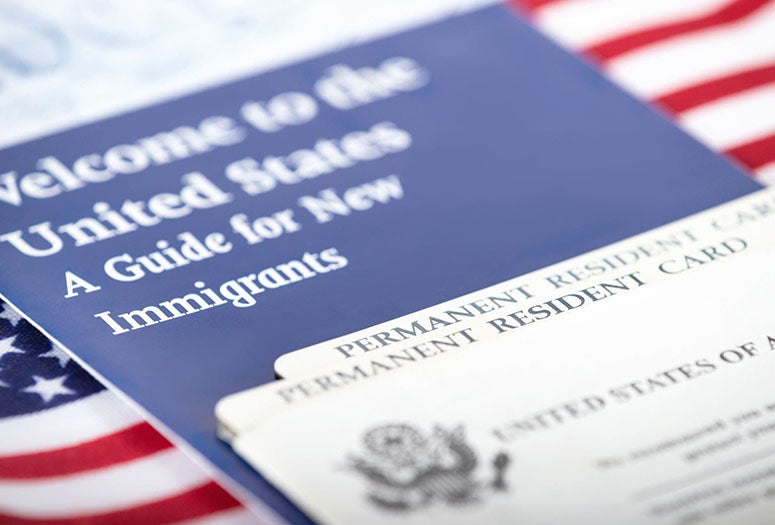HOUSTON – (June 1, 2020) – The United States needs innovative approaches to solve the pressing issue of immigrants living in the country illegally — and should use existing programs as a guide — according to experts at Rice University’s Baker Institute for Public Policy.
A new brief from the institute’s Center for the United States and Mexico says three existing programs may provide a path toward a solution: Deferred Action for Childhood Arrivals (DACA), Temporary Protected Status (TPS) and Deferred Enforced Departure (DED). More than 1 million immigrants utilize these programs for temporary protection from deportation, allowing them to remain and work in the United States.
“These protections, however, are only temporary — and risk being reduced or terminated — but their results are beginning to show that such programs do work and may be a good solution,” wrote co-authors Tony Payan, director of the Center for the United States and Mexico, and Pamela Lizette Cruz, research analyst at the center.
The authors argue that DACA, TPS and DED provide a “natural experiment” to understand the kinds of benefits the programs can provide. According to the brief, studies have shown that DACA beneficiaries have better educational, professional and economic prospects compared to peers who are not in the program.
“This brief argues for allowing unauthorized immigrants who reside in the United States an opportunity to stay legally, work without fear and be integrated as contributors to the tax base,” they wrote. “It points to the fact that the DACA, TPS and DED programs have already shown the benefits of granting legalized status for workers, families and the country. In fact, these programs have shown that a legalized status generates both economic and fiscal benefits.”
The goal of the brief, according to the authors, is not to argue for granting full citizenship but to advocate for an ID and tax program that could benefit immigrants and the country’s economy and security at the same time.
“A program that identified and properly taxed these workers (illegal immigrants already in the U.S.) would acknowledge their already deep integration into American society and would avoid painful and needless family separation — which hurts many U.S.-citizen children and youth left behind after their parents have been deported,” the authors wrote. “In that sense, an ID and tax policy would also integrate a humane approach to dealing with this resident population.”
The authors say that an ID and tax program would also allow the U.S. government to take censuses of the population of immigrants living in the country illegally, arguing this would increase public safety and strengthen national security.
“Finally, it would save the government important resources in pursuing its current policy of continual raids, mass detentions and deportations and instead allow for funds to be allocated to modernizing the current immigration management system,” they wrote.
To schedule an interview with Payan or Cruz, or for more information, contact Avery Franklin, media relations specialist at Rice, at averyrf@rice.edu or 713-348-6327.
-30-
Related materials:
Issue brief: https://www.bakerinstitute.org/media/files/files/be47af97/bi-brief-052020-usmx-id-tax.pdf.
Payan bio: https://www.bakerinstitute.org/experts/tony-payan/.
Cruz bio: https://www.bakerinstitute.org/experts/pamela-lizette-cruz/.
Center for the United States and Mexico: https://www.bakerinstitute.org/center-for-the-united-states-and-mexico/.
Follow the Baker Institute via Twitter @BakerInstitute.
Follow Rice News and Media Relations via Twitter @RiceUNews.
Founded in 1993, Rice University’s Baker Institute ranks as the No. 2 university-affiliated think tank in the world and the No. 1 energy think tank in the world. As a premier nonpartisan think tank, the institute conducts research on domestic and foreign policy issues with the goal of bridging the gap between the theory and practice of public policy. The institute’s strong track record of achievement reflects the work of its endowed fellows, Rice University faculty scholars and staff, coupled with its outreach to the Rice student body through fellow-taught classes — including a public policy course — and student leadership and internship programs. Learn more about the institute at www.bakerinstitute.org or on the institute’s blog, http://blog.bakerinstitute.org.

